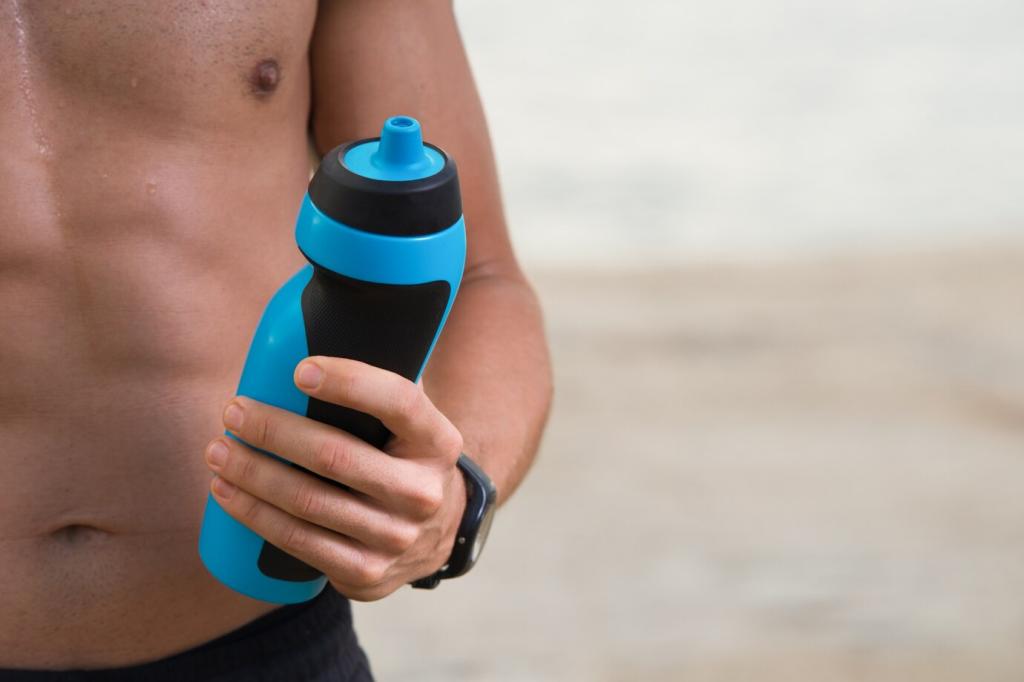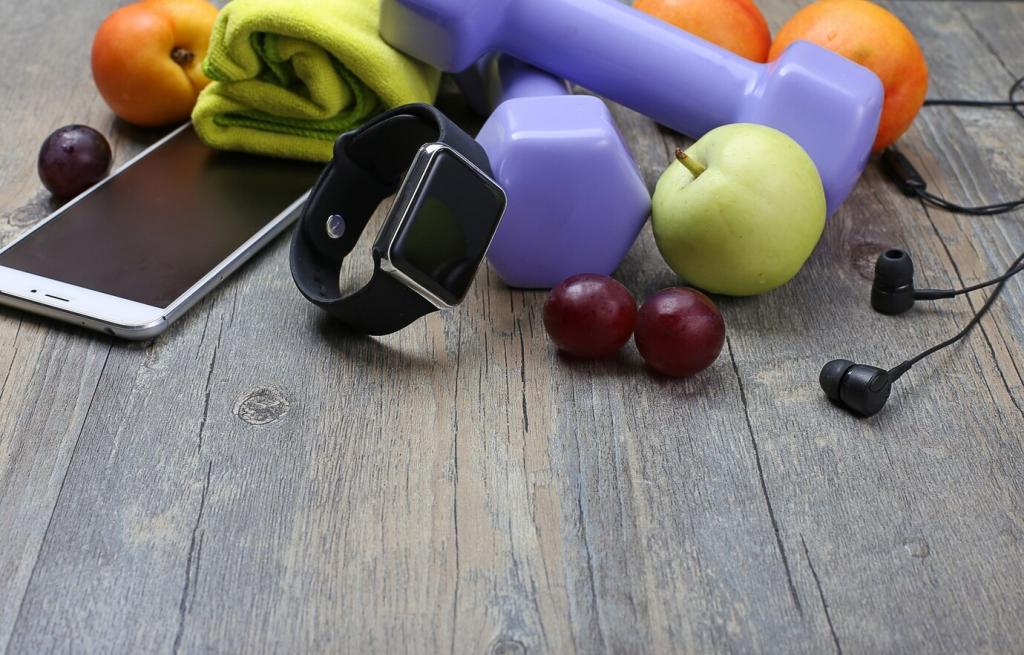Recover Smarter with Mindful Eating
Selected theme: Mindful Eating Practices to Enhance Athletic Recovery. Slow down, tune in, and nourish with intention so your training adaptations stick, soreness fades faster, and your next session starts already a step ahead. Share your rituals and subscribe for weekly mindful recovery insights.

Breath Before Bite
After training, take six slow breaths before eating. This quick reset engages your parasympathetic system, improving stomach acidity, saliva flow, and enzyme release, so protein and carbs are processed more comfortably and effectively for better recovery.

Reading Real Hunger and Fullness Signals
Use a simple 1–10 hunger scale. Ask: Am I physically hungry, thirsty, or just rewarded by emotion? Eating to comfortable satisfaction, not fullness, reduces bloating and supports stable energy for muscle repair and glycogen restoration.
Designing a Mindful Recovery Plate
Protein with Presence
Aim for roughly a palm-sized portion or 0.25–0.4 g/kg protein within an hour post-session. Notice texture and flavor as you eat; attentive pacing reduces gut discomfort and supports muscle protein synthesis without accidental overeating.
Carbohydrates for Glycogen, Chosen Consciously
Choose mostly minimally processed carbs post-workout—rice, oats, potatoes, fruit. Target around 1–1.2 g/kg in the first couple hours after hard sessions. Taste sweetness and softness, slowing down enough to match intake to actual recovery needs.
Colorful Anti-Inflammatory Allies
Add color: berries, citrus, leafy greens, tomatoes, herbs, and spices. Polyphenols and vitamin C can support recovery while mindful eating heightens satisfaction, helping you feel restored without chasing extra servings you don’t truly need.

Thirst, Habit, or Stress?
Pause before drinking. Notice whether you feel dry mouth, lightheadedness, or just habit. A quick body scan prevents mindless chugging and encourages steady sipping that supports blood volume, nutrient delivery, and comfortable digestion after tough efforts.

Electrolytes Without Overdoing It
Match electrolytes to sweat and session length. Many athletes do well with sodium around 300–700 mg per liter. Sip slowly, taste the saltiness, and assess how your body responds rather than chasing trendy, excessive concentrations.

A Post-Session Rehydration Ritual
Create a ritual: refill your bottle, sit down, and take five mindful sips while feeling your breath slow. This anchors hydration to calm, supporting absorption and a smoother shift from effort into recovery mode.
Timing with Awareness: Pre, During, Post
Before training, ask: How intense and how long? Choose a small, easily digestible carb-focused snack if needed. Checking in reduces gut issues later and lowers the urge to overcompensate with chaotic eating post-session.
Emotions, Identity, and the Post-Game Plate
After a win, pause to savor a few bites before diving in. Share gratitude with teammates, then check hunger again. Celebrating mindfully preserves joy while protecting tomorrow’s training quality and sleep comfort.
If a race goes poorly, sit with the feeling for one minute before eating. Name it—frustration, fatigue, doubt. Then build your recovery plate anyway. This separates nourishment from numbing and sustains progress when emotions run high.
Agree on a shared ritual—phones down for the first ten minutes, one story each, forks rest between bites. Collective mindfulness turns meals into recovery anchors and strengthens team culture beyond any single performance.

The Sprinter’s 20-Chew Story
A sprinter added a simple rule: chew every bite at least twenty times during dinner. Within two weeks, evening bloat faded, sleep deepened, and morning sprints felt snappier. Try it for seven days and report back.
The Cyclist’s Phone-Free Plate
A cyclist silenced notifications and ate device-free. Paying attention to taste and fullness trimmed late-night snacking and improved HRV. Mindfulness didn’t reduce calories; it refined timing. Comment if you’ll try one phone-free meal this week.
Join the 7-Day Mindful Recovery Challenge
Pick one practice—breath before bite, chew count, or hunger scale—and track it for seven days. Subscribe for the checklist, share your progress daily, and tag a training partner to join you for extra accountability.
